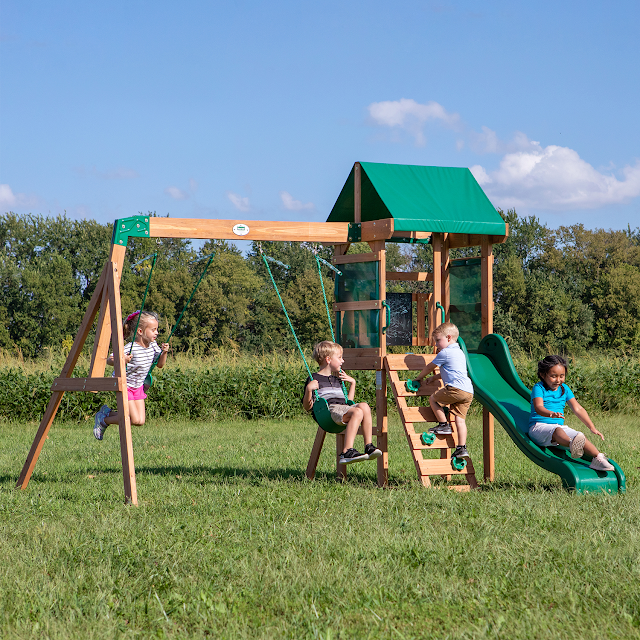Play centers, also known as play gyms or activity centers, offer a multitude of benefits for infants and young children. These purposefully designed environments provide a safe and engaging space for play and exploration. Let's explore some of the advantages of play centers:
Physical Development: Play centers feature soft mats, cushions, and an array of toys that encourage infants to engage in activities like crawling, rolling, and exploring. These activities promote the development of gross motor skills, coordination, and balance.
Cognitive and Sensory Development: Play centers incorporate a variety of toys and activities that stimulate the senses and facilitate cognitive growth. From toys with different textures, colors, and shapes to interactive elements, play centers help infants develop their sense of touch, sight, and spatial awareness.
Socialization: Play centers provide a safe and interactive environment for infants to interact with other children and adults. These social interactions foster valuable socialization skills and contribute to emotional development as children learn to share, communicate, and engage in cooperative play.
Safety: Play centers are thoughtfully designed with safety in mind. They feature soft surfaces, rounded corners, and age-appropriate materials to prevent injuries during play. Parents can have peace of mind knowing that their child is playing in a secure environment.
Convenience and Portability: Play centers are designed to be portable and versatile. They can be easily moved from room to room or taken on outings, offering parents the convenience of providing their children with a safe and stimulating play environment wherever they go.
Overall, play centers create a dynamic and enriching space for young children to engage in play and exploration, while simultaneously promoting physical, cognitive, and social development.
Frequently Asked Questions (FAQs):
What age groups are suitable for play centers?
Play centers are typically designed for infants and young children up to around 2 years old, although this may vary based on the specific features of each play center. Some play centers may cater to older children as well. It is important to refer to the manufacturer's guidelines to ensure that the play center is suitable for your child's age and developmental stage. Parental supervision is always recommended when children are using a play center.
What are the essential characteristics of a play center?
To fulfill its objective of providing an interactive environment, a play center should ideally have the following characteristics: (a) Adequate outdoor space, (b) A range of play materials, (c) Access to safe drinking water, and (d) Clean toilet facilities. Additionally, a play center should offer a diverse selection of play equipment to provide children with interesting and stimulating experiences.















0 Comments